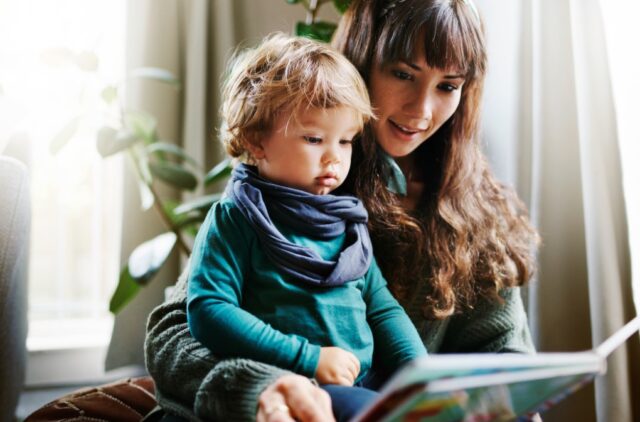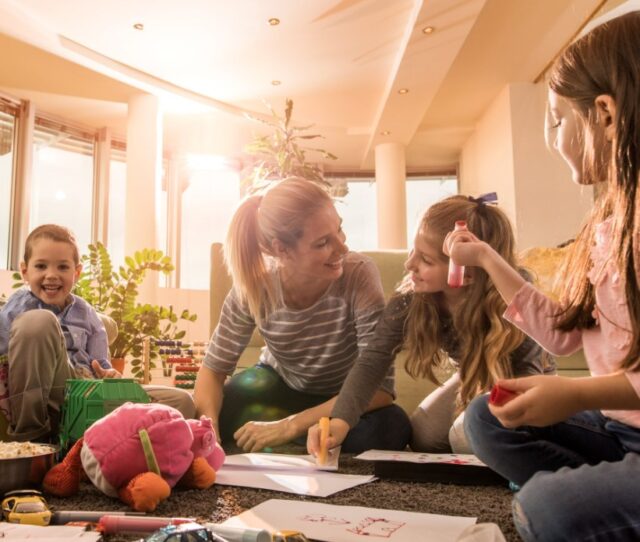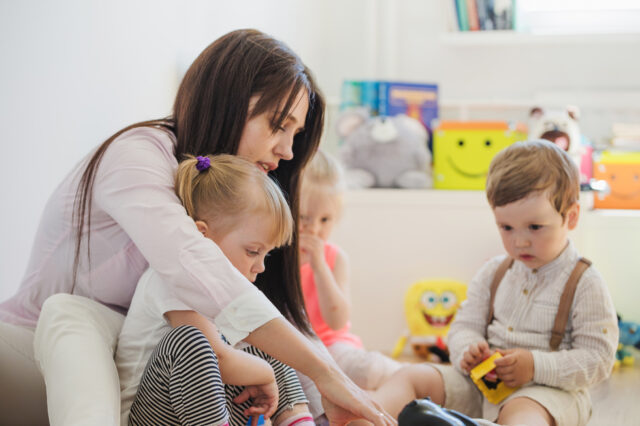
Au pairs are more than just live-in caregivers. They become like temporary family members, introducing kids to new cultures, boosting their vocabularies and building a foundation for empathy.
Host families are expected to treat them with respect, trust, and fairness. Here are some tips to help you build a supportive home for your au pair!
What is an Au Pair?
When exploring childcare options, gaining clarity on various caregiving terms is essential; au pair meaning, for instance, denotes a cultural exchange arrangement where a young person provides childcare services in exchange for room, board, and the opportunity to immerse themselves in a new cultural environment.
Au Pairs are highly-trained caregivers who provide high-quality childcare in a family setting. They are expected to participate in the daily routines of a host family’s children, including playing games, reading, and other educational activities. They also support the children’s learning and help with homework where appropriate.
Other duties can include cooking, laundry, and general household cleaning tasks. However, it is important to note that au pairs are not expected to perform heavy housework such as deep cleaning and scrubbing the windows or floors. Au pairs can also be asked to participate in school pick-ups and drop-offs as a form of child care.
Many families go out of their way to make their au pair feel welcome and included, particularly at the beginning of their placement. They may decorate their bedroom or involve them in family outings and celebrations to give their au pair a sense of belonging and familiarity. As a result, many au pairs develop close and lasting relationships with their host families. This is what sets au pairs apart from other live-in childcare providers.

What is the Au Pair’s Role?
Many families turn to a pair as a form of live-in childcare because it provides more flexibility than traditional daycare. These caregivers offer a unique cultural exchange experience while providing parents with much-needed help.
The primary role of an au pair is to care for their host family’s children. This means preparing meals, cleaning up after the kids, and providing extra support to keep the kids happy and active.
Other responsibilities may include light housework related to the children, such as laundry, emptying the dishwasher and tidying up the children’s rooms. Au Pairs are also expected to participate in the family’s regular activities, such as outings and trips.
Some Au Pairs choose to take on additional responsibilities, such as helping with gardening or making small repairs around the home. This is fine, but it is important to ensure that any extra tasks are outlined in the Au Pair contract and discussed with the Host Family beforehand. This helps avoid misunderstandings during the stay and ensures that both parties are satisfied with the arrangement.

What are the Au Pair’s Responsibilities?
Au Pairs are young women and men from other countries who want to experience life in the United States and learn more about American culture. In addition to providing childcare, Au Pairs often help with household tasks like laundry, cooking, and tidying up. The host family must agree on the duties and chores with the Au Pair at the beginning of the placement to prevent misunderstandings.
During the interview process, we encourage all families to discuss their expectations for their Au Pair with them so that they can come up with a clear agreement in writing. It is important to note that an au pair cannot be expected to do heavy household chores exclusively used by the host family, like vacuuming or cleaning rooms.
Other responsibilities include:
- Shopping.
- Taking children to and from school or extracurricular activities.
- Helping with homework and bedtime routine.
- Preparing meals for the family.
However, an Au Pair cannot have sole charge of a child under two for safety reasons. Some recommend that Au Pairs work a maximum of 45 hours per week and 10 hours daily.

What is the Au Pair’s Culture?
As part of the cultural exchange, Au Pairs will bring their customs and traditions from their home country. They are encouraged to share these with their host families so that the children can naturally learn about their culture. For example, when it comes to Holidays like Thanksgiving or Christmas, they might invite the kids to their home to enjoy traditional foods and decorations from their country.
Au Pairs also have the opportunity to join their host family in community activities like clubs and sports teams. This helps build a diverse and inclusive community atmosphere, encouraging people to celebrate their differences.
For many families, Au Pairs become more than a caretaker; they become temporary family members. This close relationship fosters the development of a deep appreciation for other cultures and their values. This can help children develop greater empathy for others and lead to more open-mindedness.

What is the Au Pair’s Lifestyle?
When people imagine the Au Pair life, they usually picture themselves looking after children in a foreign country, attending English courses, and spending their free time traveling. However, the reality is a lot different.
Au pairs provide childcare for their host families in exchange for room and board, pocket money and the opportunity to experience a new culture. The program also gives the children in the family exposure to other languages, customs and foods.
The daily schedule of an au pair will vary depending on the age and needs of the children they look after. It is normal for au pairs to spend the majority of their time with their host family and are expected to join in family meals and activities. However, they are normally given time to themselves during the evenings after the children have been dropped off at school or nursery.
Au pairs quickly become a key cog in the family wheel, bringing in extra childcare and giving the children one-on-one attention they often don’t get from daycare providers. In many cases, au pairs become extended family members and cherished friends.







